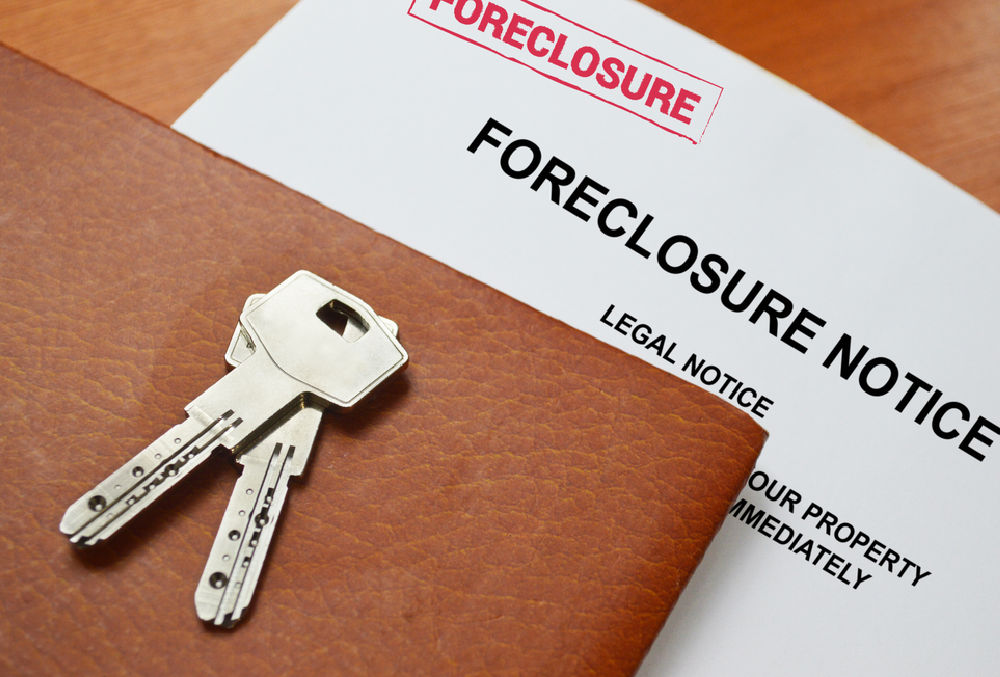There are few life events as stressful as a foreclosure. Foreclosing on your home upends your family’s life, negatively impacts your credit history, and may hurt your ability to get a new mortgage in the future. However, there are ways to prevent foreclosure, even if you can’t afford your mortgage payments. One of those methods is through a loan modification.
In this blog, we’ll share details about loan modification, who is eligible, how to obtain one to stop foreclosure, and how a lawyer for foreclosure can help.
What is foreclosure?
Foreclosure is when a lender exercises its right to seize your mortgaged property if you fail to repay your loan. The process usually begins when you miss a mortgage payment. If you go 90 days without making a scheduled payment, your mortgage will go into default. Your lender will then notify you that you are in default and begin foreclosure proceedings. If your lender has gained legal authority to foreclose, you’ll have to vacate your property. It will then be sold “as-is.”
In 2022, the national foreclosure rate was .23 percent of all housing units, down from .36 percent in 2019 and the peak of 2.23 percent in 2010. While it is the 17th largest state by population, in February 2023, Indiana had the 5th highest foreclosure rate in the nation at a rate of one in every 2,956 homes.
What is a mortgage loan modification?
A loan modification is a change in your loan terms agreed upon between you and the loan owner to help you avoid default and avoid foreclosure to keep your home. In most cases, a loan modification makes your mortgage payments more affordable. The goal is to reduce your monthly payments so you can afford your loan each month.
In a loan modification, your lender would agree to one or more of the following options to reduce your monthly payments:
· Lower the interest rate if they are currently lower than when you originally locked in your loan
· Extend the loan’s term, which gives you more time to repay your loan and lower your monthly payments
· Much less commonly, your lender may agree to allow you to pay some of your principal balance later to help reduce payments
· Modify your loan from an adjustable interest structure to a fixed-rate loan, which is helpful if you need a predictable monthly payment.
Who is eligible for a mortgage loan modification?
Your home must be your primary residence to qualify for a loan modification. You will also have had to have gone through a financial hardship that caused an income loss or reduction, such as taking on a lower-paying job, being unable to make your monthly payments, or being in danger of falling behind. Many lenders require you to be in default before agreeing to a loan modification.
Lastly, you’ll have to show that you can make regular payments under the terms of the loan modification agreement. Beyond that, different investors have specific terms under which they will approve loan modifications. Although loan modifications can stop foreclosure, they can also negatively impact your credit score, making it difficult for you to purchase property down the road.
How to get a loan modification
The process to obtain a loan modification varies for each lender. Still, in most cases, you need to apply through a “borrower response package” or a “loss mitigation application.” Some require a hardship letter that explains why you need the loan modification. Other lenders automatically evaluate you for a mortgage modification if you are behind by a certain number of payments. If you’re denied, you can file an appeal with your lender.
At Sawin & Shea LLC we use Chapter 13 bankruptcy in conjunction with a loan modification program to help people with significant delinquencies on mortgages. Through our program a personal modification representative will work with you and your lender though a Court approved document portal. This provides a great opportunity to get all involved on the same page and helps to facilitate a solution. If a modification is not forthcoming, the Chapter 13 plan provides other opportunities to get the mortgage back on track.
Bankruptcy assistance for Indianapolis area homeowners
The attorneys at Sawin & Shea, LLC have experience helping Indianapolis and surrounding county homeowners prevent foreclosure by combining Chapter 13 bankruptcy with mortgage modifications. If you are wondering, “Will loan modification stop foreclosure?”, our attorneys are committed to providing compassionate, non-judgmental representation to all our clients. Contact us today for help.



